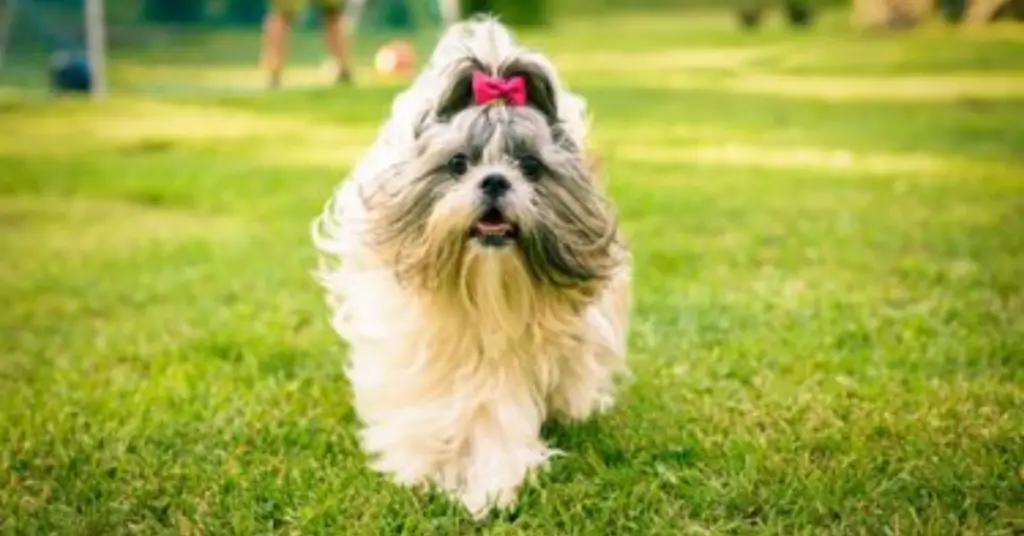
Training a Shih Tzu can be a delightful yet challenging endeavor. These small, affectionate dogs are known for their stubborn streaks, but with patience, consistency, and the right techniques, you can teach your Shih Tzu to be well-behaved and obedient. This guide explores effective methods to train your Shih Tzu, ensuring they develop good manners and follow commands.
Understanding Shih Tzu Behavior
The Shih Tzu Personality
Shih Tzus are friendly, outgoing dogs that love to be around people. However, they can also be quite independent and strong-willed. Understanding their personality traits is crucial in tailoring your training approach. They respond best to positive reinforcement and can become resistant if treated harshly.
Common Behavioral Challenges
Due to their independent nature, Shih Tzus can exhibit behaviors such as stubbornness, selective hearing, and occasional aggression towards other dogs. Housebreaking can also be a challenge. Identifying these potential issues early on can help in addressing them effectively.

Establishing a Training Routine
Consistency is Key
Consistency is vital when training a Shih Tzu. Set a daily routine for training sessions, ensuring they are short but frequent. This helps your dog understand expectations and reinforces learning. Consistent commands and rewards also aid in quicker comprehension.
Positive Reinforcement
Positive reinforcement involves rewarding your Shih Tzu for desired behaviors. Use treats, praise, and affection to reward your dog when they follow commands or exhibit good manners. This method encourages them to repeat the behavior, associating it with positive outcomes.
Basic Obedience Training
Teaching Basic Commands
Start with basic commands such as “sit,” “stay,” “come,” and “down.” Use clear, simple words and accompany them with hand signals. For example, hold a treat above their head and say “sit.” When they sit, immediately reward them. Repeat this process until they understand the command.

The Importance of Socialization
Socialization is an essential part of obedience training. Expose your Shih Tzu to various environments, people, and other animals to help them become well-rounded and confident. Positive social experiences reduce fear and aggression, making your dog more adaptable and obedient.
Housebreaking Your Shih Tzu
Creating a Schedule
Housebreaking requires a consistent schedule. Take your Shih Tzu outside frequently, especially after meals, playtime, and naps. Choose a specific spot for them to relieve themselves and use a command like “go potty.” Praise and reward them immediately after they go.
Crate Training

Crate training is an effective housebreaking method. It leverages a dog’s natural instinct to avoid soiling their sleeping area. Introduce the crate as a positive space, not a punishment. Use it for short periods initially, gradually increasing the time as your dog becomes comfortable.
Addressing Behavioral Issues
Handling Stubbornness
Shih Tzus can be stubborn, so patience is essential. If they refuse to follow commands, avoid getting frustrated. Instead, try to make training sessions fun and engaging. Use high-value treats and praise to motivate them. Break tasks into smaller steps to help them succeed.
Reducing Aggression
If your Shih Tzu shows aggression towards other dogs or people, it’s important to address it early. Socialization and obedience training are crucial. Work on commands like “leave it” and “stay” to manage their behavior. In severe cases, consider seeking help from a professional trainer.
Advanced Training Techniques

Clicker Training
Clicker training is a popular technique that uses a clicker device to mark desired behaviors. The sound of the clicker signals to your dog that they’ve done something right and will receive a reward. This method can accelerate learning and improve precision in following commands.
Leash Training
Leash training helps manage your Shih Tzu during walks and ensures they behave appropriately. Use a comfortable harness and start in a quiet area. Reward them for walking beside you without pulling. Gradually introduce distractions and practice commands like “heel” and “stop.”
Building Good Manners
Preventing Jumping

Shih Tzus can be enthusiastic greeters, often jumping up on people. To prevent this, ignore them when they jump and only give attention when all four paws are on the ground. Teach the “off” command and reward them for staying down.
Reducing Barking
Excessive barking can be a common issue with Shih Tzus. Identify the cause, whether it’s boredom, anxiety, or excitement. Provide plenty of mental and physical stimulation to reduce boredom. Use commands like “quiet” and reward them for being silent.
Enrichment and Exercise
Mental Stimulation
Mental stimulation is crucial for a happy and well-behaved Shih Tzu. Use puzzle toys, interactive games, and training sessions to keep their minds engaged. Mental challenges prevent boredom and reduce the likelihood of behavioral problems.
Physical Exercise
While Shih Tzus are small dogs, they still need regular exercise to stay healthy and happy. Daily walks, playtime, and interactive toys help burn off excess energy. A tired dog is more likely to be well-behaved and responsive to training.
Maintaining Training Success

Ongoing Training
Training doesn’t end once your Shih Tzu learns the basics. Ongoing training is essential to reinforce good behavior and prevent regression. Continue practicing commands and introduce new ones to keep them engaged and obedient.
Patience and Persistence
Training a Shih Tzu requires patience and persistence. Celebrate small successes and remain calm during setbacks. Building a strong bond based on trust and positive reinforcement will make training a rewarding experience for both you and your dog.
Conclusion
Training your Shih Tzu involves understanding their unique personality and applying consistent, positive techniques. From basic obedience and housebreaking to addressing behavioral issues and advanced training, each step requires patience and dedication. By providing mental stimulation, regular exercise, and ongoing training, you can ensure your Shih Tzu grows into a well-mannered and obedient companion. Remember, the key to successful training is a combination of love, patience, and persistence.


